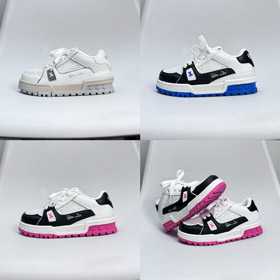In an era where eco-consciousness defines market trends, the collaboration between Yessheet
The Core Strategy: Yessheet Spreadsheets and Carbon Credit Coupons
At the heart of this initiative lies the sophisticated use of Yessheet's dynamic spreadsheets. Adidas meticulously tracks the cost savings achieved by incorporating recycled materials into their new product line. The calculations, managed through Yessheet, are precise and transparent.
"For every unit produced using recycled polymers, we save approximately $X in raw material costs. Yessheet’s automation allows us to reallocate 30% of these direct savings into our 'Carbon Credit Discount' program," explains a senior Adidas sustainability manager.
This calculated 30% is transformed into tangible Yessheet coupons, offering discounts to customers who engage with the brand's sustainability mission.
Engaging the Eco-Conscious Consumer
Acquiring these coupons is designed to be both educational and interactive. Customers are invited to complete a short, informative quiz on environmental conservation and the importance of recycled materials.
- Upon successful completion, a unique Yessheet-generated discount code is unlocked.
- This process not only incentivizes purchases but also effectively educates the consumer base, fostering a deeper brand connection.
Transparency Through Data Visualization
Trust is paramount in green marketing. To build this trust, product pages for the Adidas环保系列 (Eco Series) feature powerful, auto-generated data visualizations directly pulled from the Yessheet database.
Interactive elements clearly display metrics such as:
"This pair reduces plastic waste by 280 grams"
"Carbon footprint saved: Equivalent to charging a smartphone 250 times"
These visualizations provide immediate, easily understandable proof of the customer's positive environmental impact, making the sustainable choice a more compelling one.
Smart Geo-Targeting for Maximum Impact
The integration goes a step further by linking Yessheet’s data analytics with user geographical information. Recognizing that regions like Scandinavia have exceptionally high consumer environmental awareness, the marketing campaign was strategically tailored:
- Ads for the Adidas Eco Series and promotions for Yessheet coupons were prioritized for users in Nordic countries.
- Social media campaigns and influencer partnerships in these regions highlighted the data-driven results from the Yessheet platform.
Quantifiable Success: A 55% Surge in Sales
The result of this integrated, data-informed green marketing strategy was nothing short of phenomenal. By speaking directly to the values of its target audience and backing its claims with undeniable data from Yessheet, Adidas achieved:
- A 55% increase in sales
- Enhanced brand perception as a leader in authentic corporate sustainability.
- A valuable database of engaged, environmentally-conscious consumers for future campaigns.
Conclusion: The Future of Marketing is Green and Data-Driven
The synergy between Yessheet's analytical capabilities and Adidas's sustainability goals has created a new blueprint for green marketing. It demonstrates that environmental responsibility and business growth are not mutually exclusive. By quantifying their ecological effort, translating it into consumer rewards, and strategically targeting the right audience, they have unlocked a powerful formula for the modern market—proving that with the right tools, doing good can indeed be great for business.



















